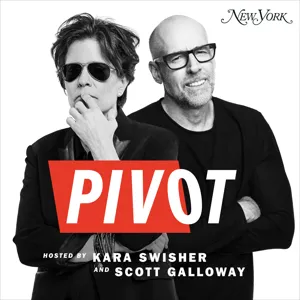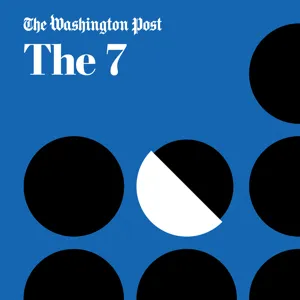Hollywood’s still not back

Explore "writers_strike" with insightful episodes like "Hollywood’s still not back", "Did Hollywood Writers Get Their Happy Ending?", "Writers Strike Deal, Betting Against the FTC, and Guest Mathias Döpfner", "Hollywood Writers Strike Deal & Ukraine’s US Funding | 9.26.23" and "Fran Drescher on How the Hollywood Strikes Can End" from podcasts like ""Today, Explained", "The Daily", "Pivot", "Morning Wire" and "Consider This from NPR"" and more!


After 148 days on strike, writers of movies and television are returning to work on Wednesday
with an agreement in hand that amounts to a major win for organized labor in Hollywood.
John Koblin, a media reporter for The Times, explains why the studios acquiesced to writers’ demands and what the deal means for the future of American entertainment.
Guest: John Koblin, a media reporter for The New York Times.
Background reading:
For more information on today’s episode, visit nytimes.com/thedaily. Transcripts of each episode will be made available by the next workday.


Striking Hollywood writers have reached a breakthrough after almost 5 months, as the U.S. considers sending more money to Ukraine many wonder what their tax dollars are being used for, and the Democrat mayor of El Paso says his city is overwhelmed by migrants. Get the facts first with Morning Wire.
ZBiotics: "Get 15% off your order with promo code WIRE
http://www.ZBiotics.com/Wire"
ZipRecruiter: "Try ZipRecruiter for FREE: https://www.ziprecruiter.com/Wire"
Black Rifle Coffee: Get 10% off your first order or Coffee Club subscription with code WIRE: https://www.blackriflecoffee.com/






Streaming studios may benefit from the WGA strike, marijuana laced with fentanyl kills several and facial recognition technology at the airport. Get the facts first with Morning Wire.
Birch Gold: No-Cost, No-Obligation FREE Information Kit Text “WIRE"" to 989898

For viewers, streaming has ushered in an era of Peak TV with a seemingly endless amount of shows to binge. But, writers on strike say they’re not experiencing the same golden age when it comes to compensation and job stability. And, some streaming companies are struggling to hang on to subscribers in an ultra-competitive market.
This has us wondering: Has streaming broken TV?
On the show today, Kate Fortmueller, professor of entertainment and media studies at the University of Georgia, explains how streaming has changed the way film and TV writers make a living, why studios’ priorities have shifted in the streaming age, and what might be ahead for the industry. Plus, why screenwriters are asking for limits on the use of AI.
In the News Fix: Looking back at a previous writers strike might hint at the impact of the current strike. And, Home Depot says it expects a drop in annual sales for the first time in over a decade. We’ll get into what that might say about the housing market.
Later, a listener shares their experience ordering pizza from an AI bot. Plus, according to another listener, keeping things tidy with young kids is much harder than they had thought.
Here’s everything we talked about today:
It’s our May fundraiser. We need to raise $350K to stay on track for this fiscal year, and your gift now can help us reach our goal. Give today.


This week, thousands of writers went on strike against Hollywood studios over what they say is an existential threat to their livelihoods.
John Koblin, a media reporter for The New York Times, explains how streaming turned the most prolific era in American entertainment into an industry-changing labor dispute.
Guest: John Koblin, a media reporter for The New York Times.
Background reading:
For more information on today’s episode, visit nytimes.com/thedaily. Transcripts of each episode will be made available by the next workday.


Wednesday briefing: Texas shooting suspect; Federal Reserve meeting; Biden border strategy; Hollywood writers’ strike; and more

For the first time since 2016, Trump will be back on CNN for a live event. It's a huge gift to Trump. Will the media once again center their campaign coverage on him—to the disadvantage of the Biden? Plus, McCarthy's new tone on Ukraine. A.B. Stoddard joins Charlie Sykes today.
To continue the conversation go to https://bulwarkpodcast.thebulwark.com/.
Learn more about your ad choices. Visit podcastchoices.com/adchoices

Stay up to date
For any inquiries, please email us at hello@podcastworld.io